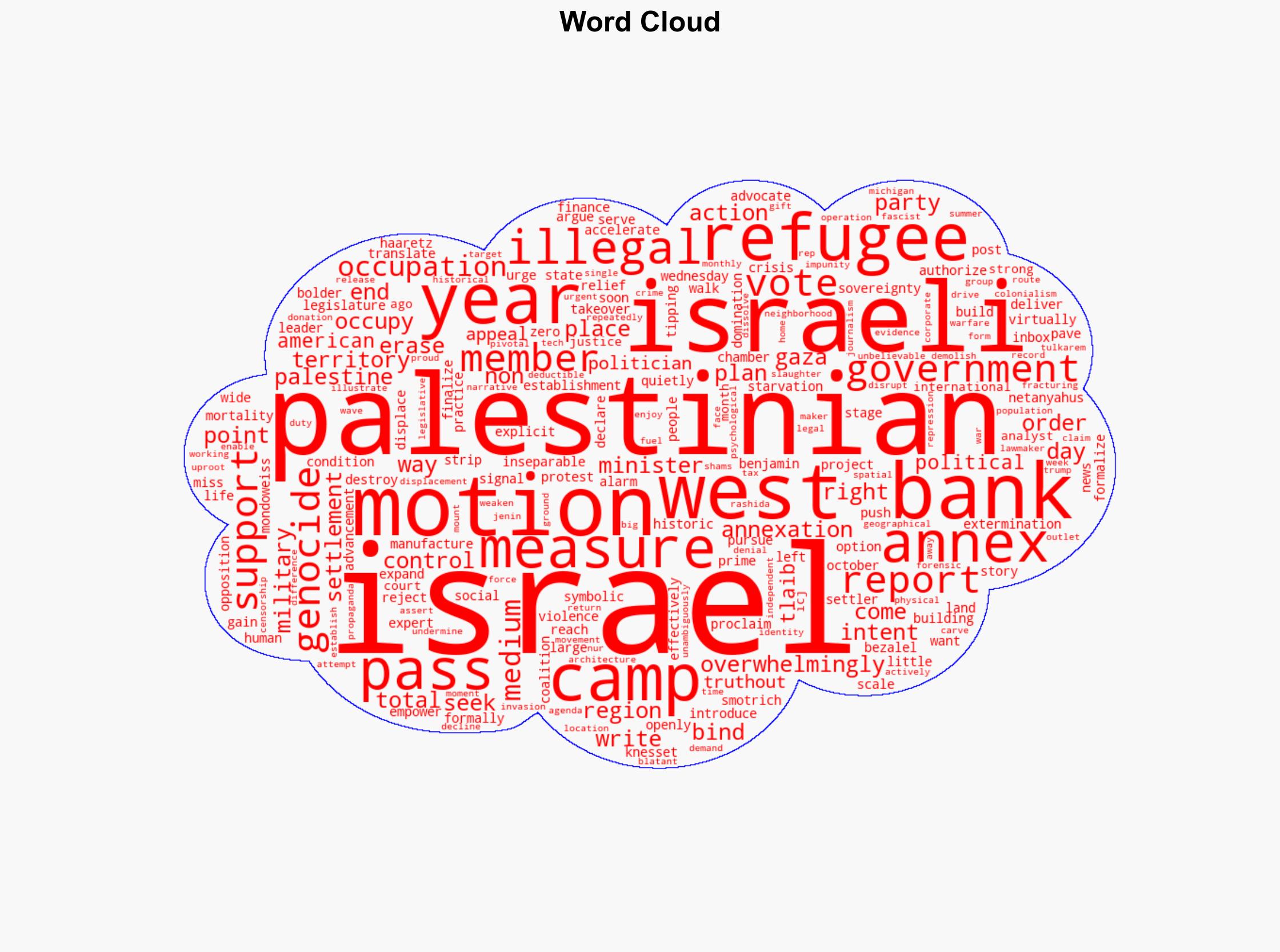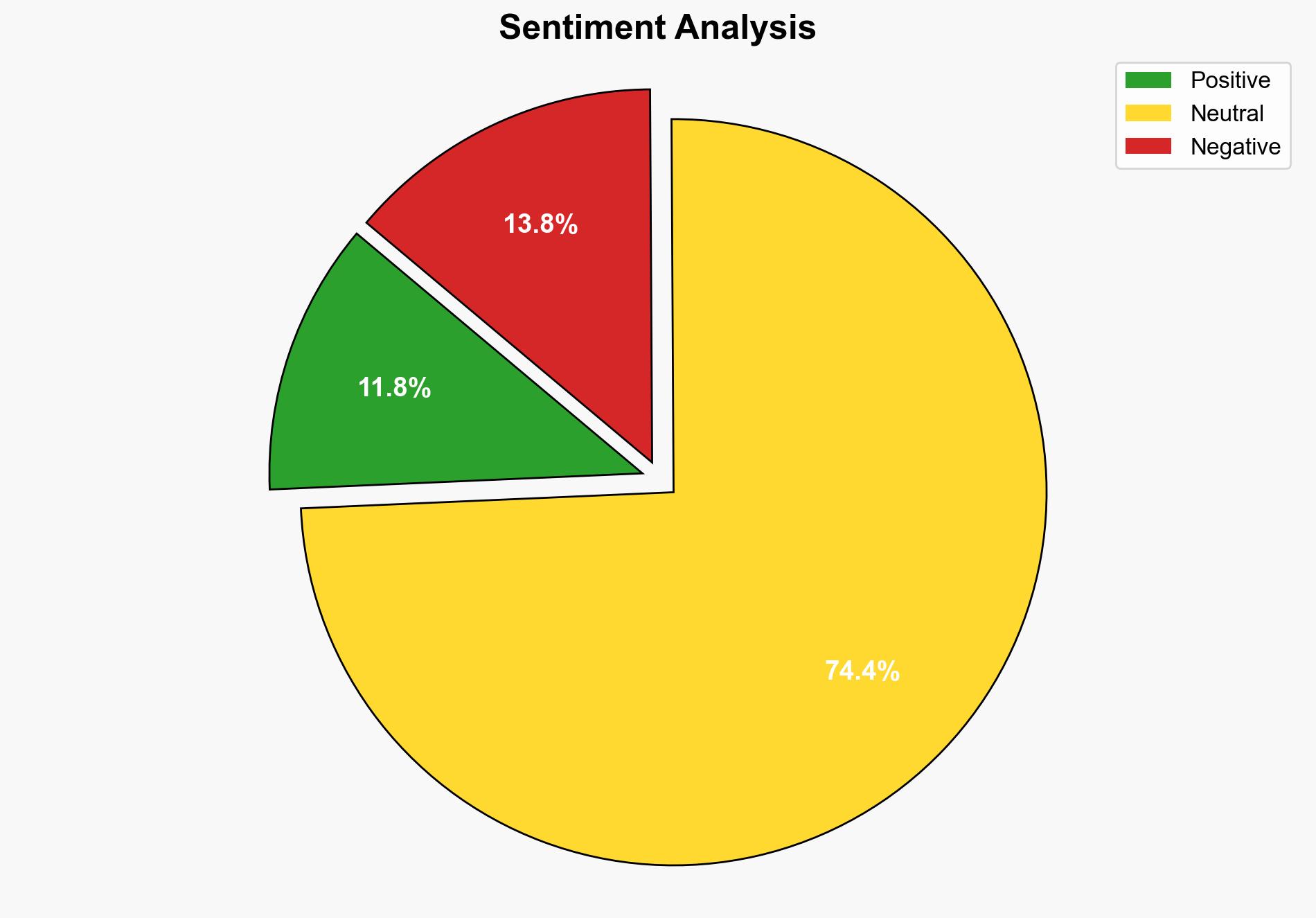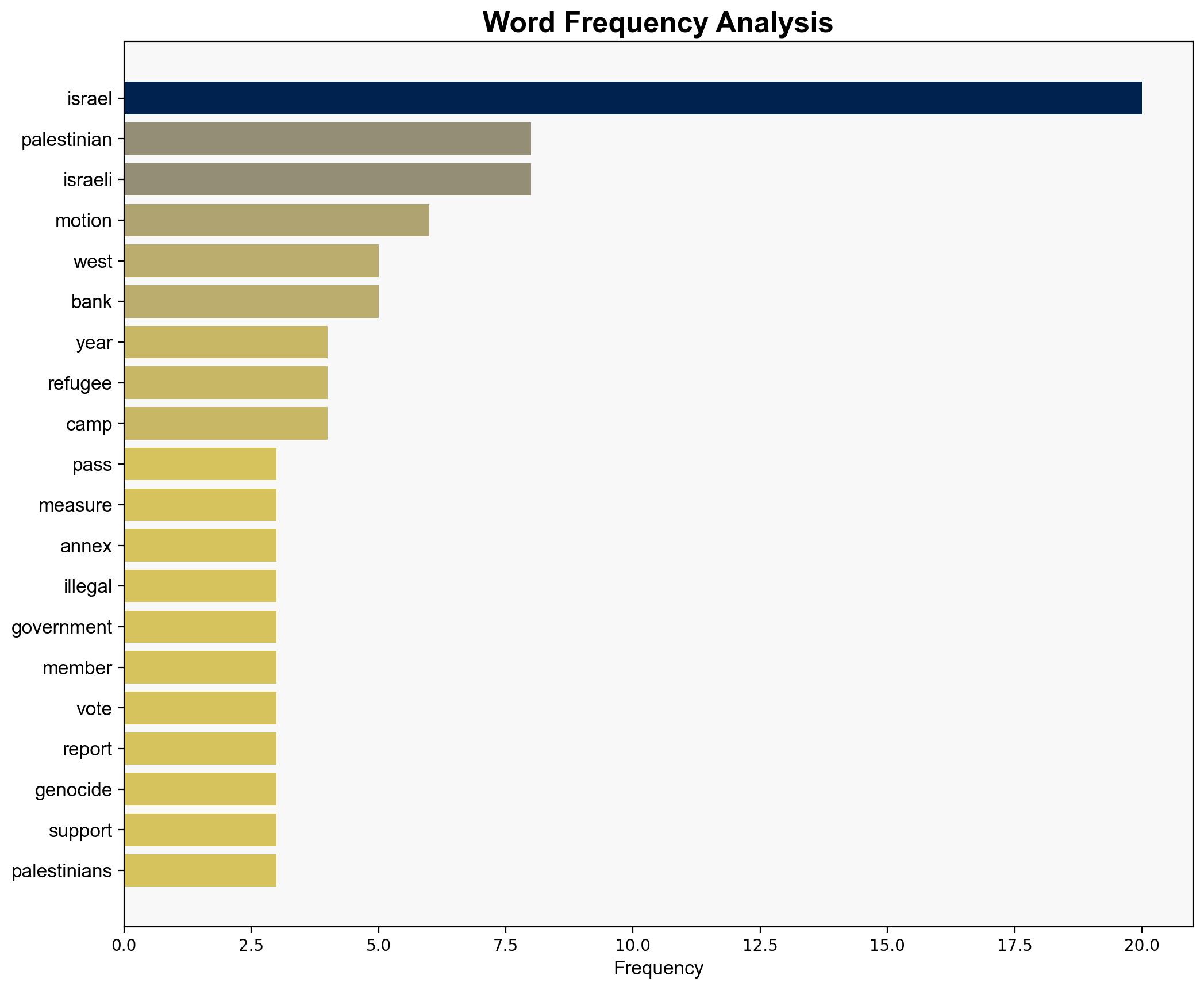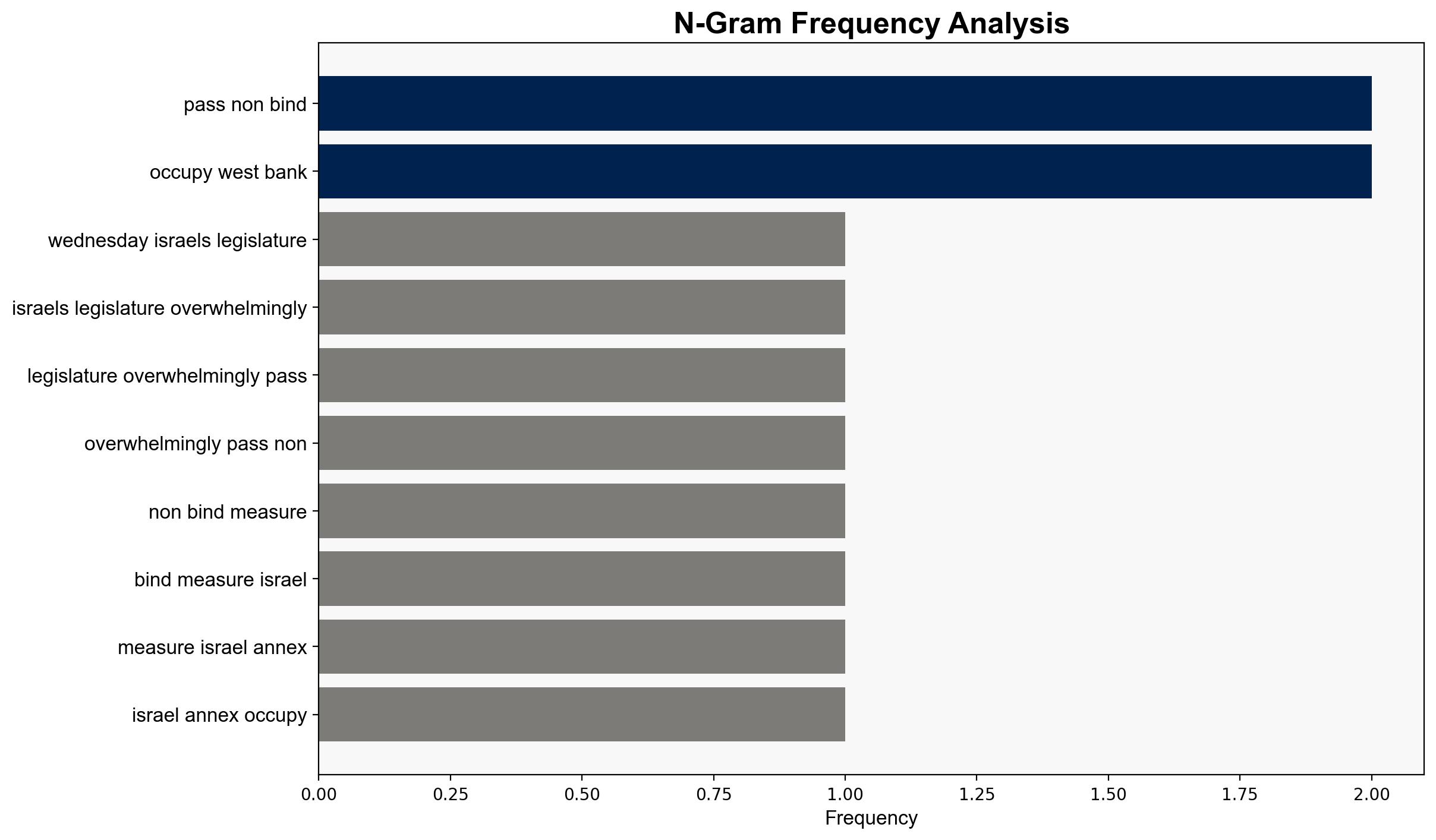Israeli Knesset Overwhelmingly Passes Motion Calling for West Bank Annexation – Truthout
Published on: 2025-07-25
Intelligence Report: Israeli Knesset Overwhelmingly Passes Motion Calling for West Bank Annexation – Truthout
1. BLUF (Bottom Line Up Front)
The Israeli Knesset’s passage of a non-binding motion to annex the West Bank suggests a strategic shift towards formalizing control over the region. The most supported hypothesis is that this motion is a precursor to more concrete annexation efforts, potentially escalating regional tensions. Confidence level: Moderate. Recommended action: Monitor Israeli legislative developments and international responses closely, while preparing diplomatic strategies to address potential escalations.
2. Competing Hypotheses
1. **Hypothesis A**: The motion is primarily symbolic, intended to appease domestic political factions without immediate plans for formal annexation. This hypothesis suggests that the motion serves as a political tool to consolidate support within Israel without provoking significant international backlash.
2. **Hypothesis B**: The motion is a strategic step towards formal annexation, indicating a deliberate policy shift that could lead to increased settlement activity and potential military actions in the West Bank. This hypothesis posits that the motion is part of a broader plan to assert Israeli sovereignty over the region.
Using the Analysis of Competing Hypotheses (ACH) 2.0, Hypothesis B is better supported by the evidence of increased settlement activity and explicit government backing for annexation plans.
3. Key Assumptions and Red Flags
– **Assumptions**:
– Hypothesis A assumes that international pressure will deter formal annexation.
– Hypothesis B assumes that domestic political support outweighs potential international consequences.
– **Red Flags**:
– Lack of explicit timelines or legislative steps following the motion.
– Potential cognitive bias in interpreting the motion as purely symbolic without considering broader geopolitical strategies.
– **Inconsistent Data**:
– Discrepancies in reports regarding the level of international response and potential sanctions.
4. Implications and Strategic Risks
– **Geopolitical Risks**: Increased tensions with Palestinian authorities and potential for regional conflict escalation.
– **Economic Risks**: Potential international sanctions could impact Israel’s economy.
– **Psychological Risks**: Heightened tensions could lead to increased radicalization and violence.
– **Cascading Threats**: A formal annexation could trigger broader Middle Eastern instability, affecting global security dynamics.
5. Recommendations and Outlook
- Engage in diplomatic dialogues with Israeli and Palestinian representatives to de-escalate tensions.
- Prepare contingency plans for potential regional conflicts, including humanitarian aid strategies.
- Scenario Projections:
- Best Case: The motion remains symbolic, leading to renewed peace talks.
- Worst Case: Formal annexation triggers widespread conflict and international sanctions.
- Most Likely: Incremental steps towards annexation with intermittent international diplomatic interventions.
6. Key Individuals and Entities
– Benjamin Netanyahu
– Bezalel Smotrich
– Rashida Tlaib
7. Thematic Tags
national security threats, geopolitical strategy, regional focus, conflict escalation





